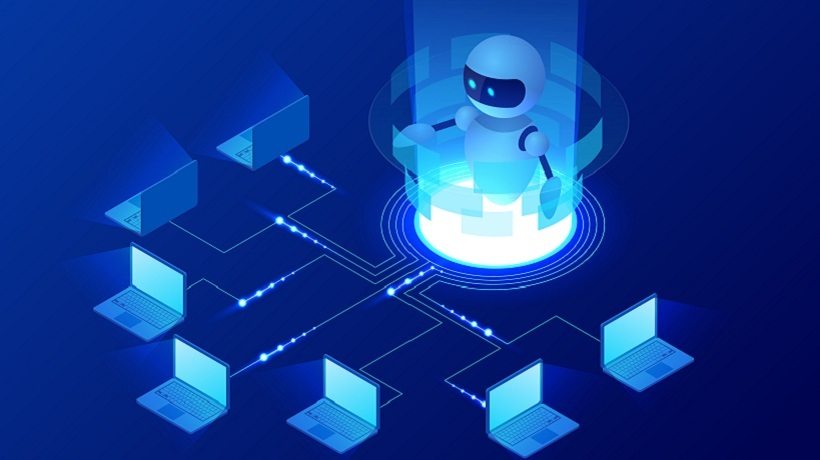Artificial intelligence (AI) has evolved significantly in education, transforming the way students learn and teachers impart knowledge. The history of AI in education dates back to the 1980s when computers began to be integrated into educational settings.
Over the years, AI has been instrumental in personalizing learning experiences, providing adaptive learning platforms, and offering virtual tutoring and assessment tools. By leveraging AI, educational institutions can analyze vast amounts of data to identify learning patterns and customize teaching methods.
This has revolutionized education, making it more accessible, interactive, and tailored to individual needs. As AI continues to advance, its role in education is expected to expand further, shaping the future of learning and teaching.

Credit: elearningindustry.com
The Origin Of Ai In Education
The origin of AI in education can be traced back to early implementations in learning solutions. AI technologies began to emerge, aiming to enhance educational experiences and support personalized learning. With advancements in natural language processing and machine learning, early AI systems were designed to assist in language instruction and basic skills development. Over time, AI has continued to evolve, playing a significant role in the development of intelligent tutoring systems and adaptive learning platforms. These innovations have paved the way for customized learning experiences and improved educational outcomes, impacting the way students engage with course materials and educational content.
Impact Of Ai In Classrooms
The history of AI in education is fascinating, and its impact in classrooms has been significant. Personalized learning through AI has revolutionized the way students learn, allowing for tailored educational experiences that cater to individual strengths and weaknesses. With the integration of gamification and AI in education, learning has become more engaging and interactive, fostering a deeper understanding of complex concepts. The adoption of AI has empowered educators to provide real-time feedback and assessment, ultimately enhancing the overall learning experience. This integration has not only streamlined administrative tasks but has also opened new doors for innovative teaching methods, paving the way for a more efficient and effective educational system.
Enhanced Student Engagement
In the history of education, AI-powered adaptive learning has revolutionized student engagement. AI tools have facilitated seamless student-teacher interaction by personalizing learning experiences and providing timely feedback. These tools have enabled educators to tailor their teaching methods to meet individual student needs, leading to improved student motivation and performance. Furthermore, the integration of AI in education has created an interactive and dynamic learning environment, making the learning process more engaging and effective. Students can now benefit from personalized learning pathways and real-time assistance, resulting in a more impactful educational experience. As AI continues to advance, its role in education is expected to further enhance student engagement and academic success.
Future Prospects Of Ai In Education
The history of AI in education dates back several decades, with the future prospects of AI in education showing great promise. AI advancements in the education sector have the potential to revolutionize learning by offering personalized learning experiences, adaptive learning platforms, and real-time feedback. These advancements can help educators gain insights into student learning patterns and tailor teaching methods accordingly.
Frequently Asked Questions On History Of Ai In Education
What Is The Role Of Ai In Education?
AI plays a pivotal role in education by personalizing learning, automating administrative tasks, and providing real-time feedback to students and educators. It enables adaptive learning, enhances student engagement, and prepares learners for the demands of the future workforce.
How Does Ai Improve The Learning Experience?
AI improves the learning experience by providing personalized recommendations, identifying learning gaps, and delivering interactive and engaging content. It adapts to individual learning styles, offers instant feedback, and facilitates collaborative and interactive learning environments.
What Are The Potential Benefits Of Ai In Education?
The potential benefits of AI in education include increased efficiency in administrative tasks, enhanced personalization of learning, improved accessibility to educational resources, and better tracking of student progress. It also fosters critical thinking, problem-solving skills, and prepares students for the technological advancements of the future.
Is Ai Replacing Teachers In The Education Sector?
While AI can automate certain tasks and facilitate the learning process, it is not replacing teachers. Instead, it complements and supports educators by providing valuable insights, freeing up time for personalized instruction, and fostering creativity and innovation in the classroom.
Teachers remain essential for mentorship and social-emotional development.
Conclusion
The history of AI in education has seen rapid advancements and potential for growth. From early experimentation to current adaptive learning technologies, AI has enhanced the learning experience. As AI continues to evolve, its impact on education will undoubtedly shape the future of teaching and learning.
Let’s embrace the potential and continue to explore the possibilities.





